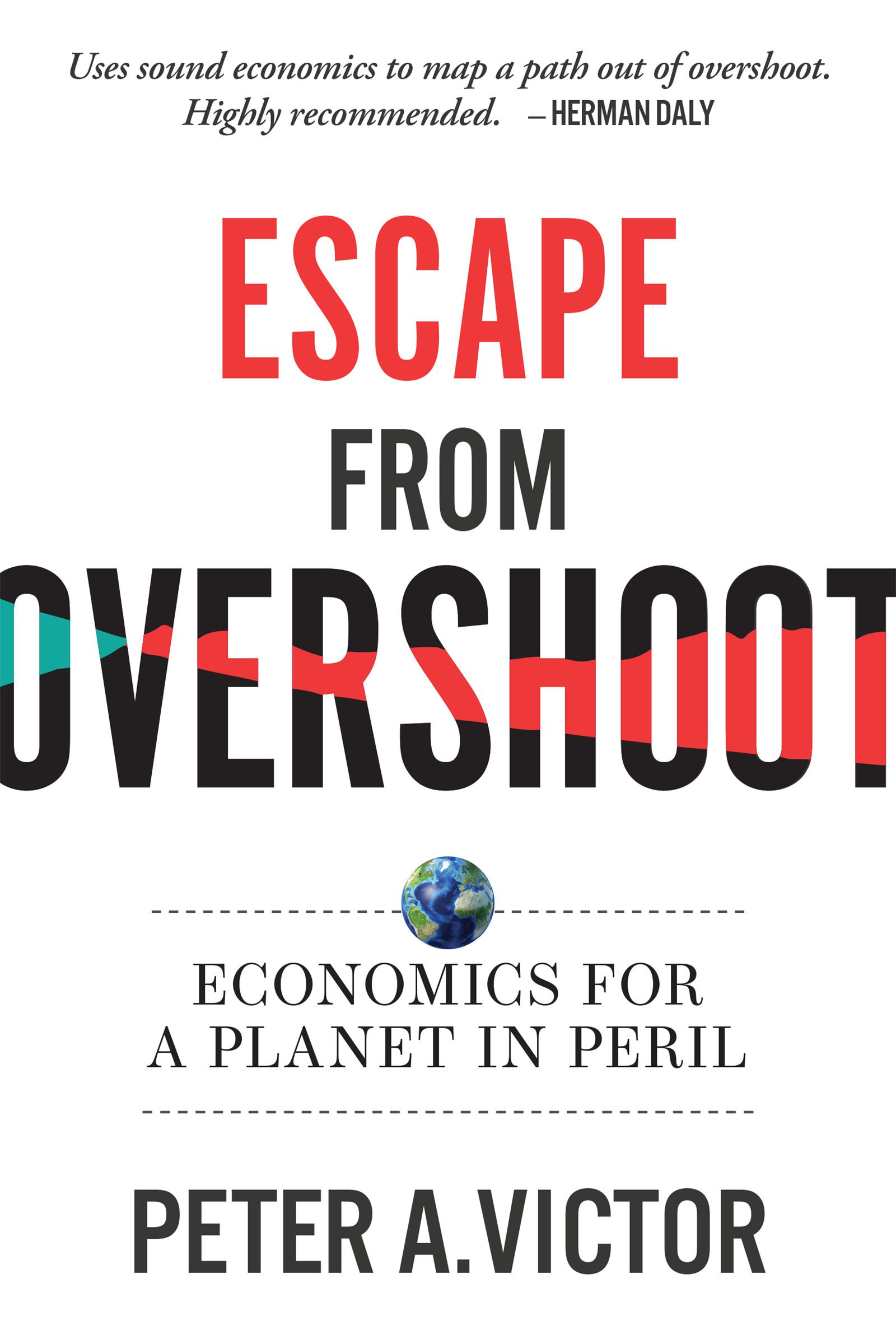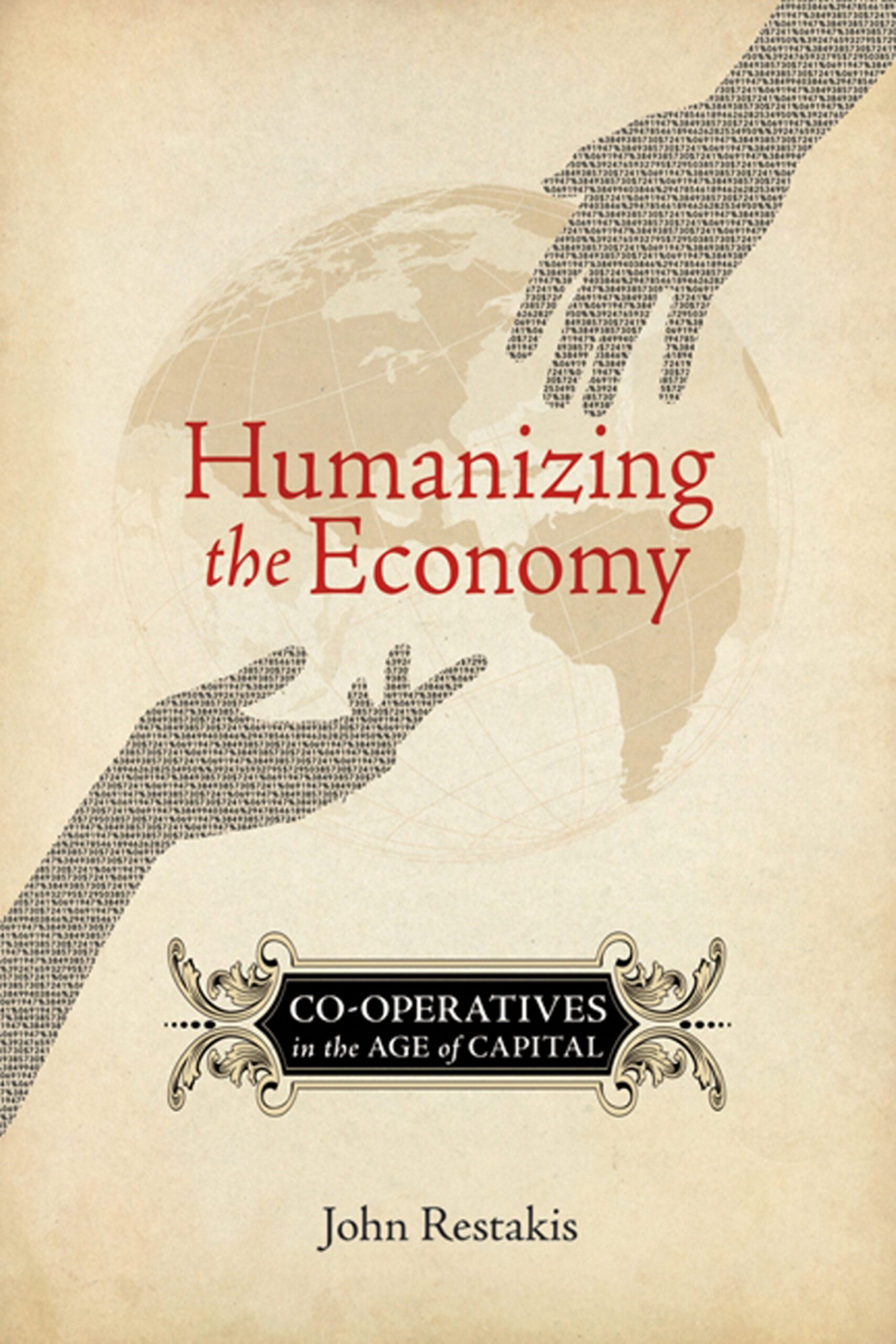
Is another future possible? A more sustainable and just one? Peter A. Victor believes it is, and in Escape From Overshoot, he weaves together threads from a variety of disciplines to both paint a clear picture of where we are now, and lay out clear, proven ways we can work together to create a more attractive future than if current trends continue. With an emphasis on economics – from flawed systems to more promising alternatives – he examines options and possibilities that just might help us navigate converging crises to build a better tomorrow.
From Chapter 9: Planning an Escape from Overshoot
Is another future possible? A more sustainable and just one? Peter A. Victor believes it is, and in Escape From Overshoot, he weaves together threads from a variety of disciplines to both paint a clear picture of where we are now, and lay out clear, proven ways we can work together to create a more attractive future than if current trends continue. With an emphasis on economics – from flawed systems to more promising alternatives – he examines options and possibilities that just might help us navigate converging crises to build a better tomorrow.
In this excerpt, we share the author’s “Fourteen Propositions for Planning an Escape From Overshoot,” which he builds upon throughout the book.
Fourteen Propositions for Planning an Escape from Overshoot
1. There is compelling evidence that humanity is living in an era of global overshoot.
2. A reduction in the physical scale of the human enterprise is essential to escape from overshoot.
3. The historical and current causes and consequences of overshoot are extremely unequal within and among countries.
4. Limits on material and energy throughput and land transformation are critical to an escape from overshoot.

5. Contraction and convergence is an appropriate ethical principle for building an escape plan.
6. A planned escape from overshoot requires a common sense of purpose such as has been seen in times of war and pandemics.
7. A common sense of purpose should be founded on principles of justice, otherwise the escape plan will be compromised by people and institutions seeking their own self-interest rather than working towards shared objectives. These principles of justice should encompass non-human life as well as human.

8. A common sense of purpose is more likely to emerge from forms of democracy that combine representation and participation, and which are based on the principle of subsidiarity— that social, political, and environmental issues are best dealt with at the most immediate level consistent with their resolution.
9. Reductions in population should be welcomed, planned for, and encouraged through increased measures such as: accessibility to education especially for girls, increased availability of contraception, provision of a basic income and wealth, and better support for the elderly.
10.Finance should facilitate the escape from overshoot rather than exacerbate it. To this end, money creation by commercial banks should be curtailed. The financialization of nature and the implication that it exists solely to serve human interests, should be halted and reversed.
11. Technology does not exist in isolation. It is embodied in materials and requires energy for its production and use. Technologies often have unintended consequences which can be positive and negative. Whether and how technology contributes to the escape from overshoot depends on who owns it and what they seek to obtain from that ownership.
12. Knowledge and ideas should be shared as much as possible given that they are non-rival. Exclusion of potential users through intellectual property rights should be discouraged, especially where it impedes the flow of information, products, and services to low-income countries as happened, for example, during the COVID-19 pandemic.

13. Capitalism presents serious obstacles to an escape from overshoot. It serves the interests of the owners of capital, who, through increasingly powerful corporations, are constantly looking for ways to extend their reach, increasing overshoot, and only incidentally serving the interests of other members of society. Experience with Socialism has a mixed record in relation to overshoot, having focused on growth almost as much as in capitalism, and it has shown the shortcomings of central planning.
14. Overshoot will transform economic and political systems. It is better to choose the transformations we want rather than have them forced upon us by circumstances beyond our control.







